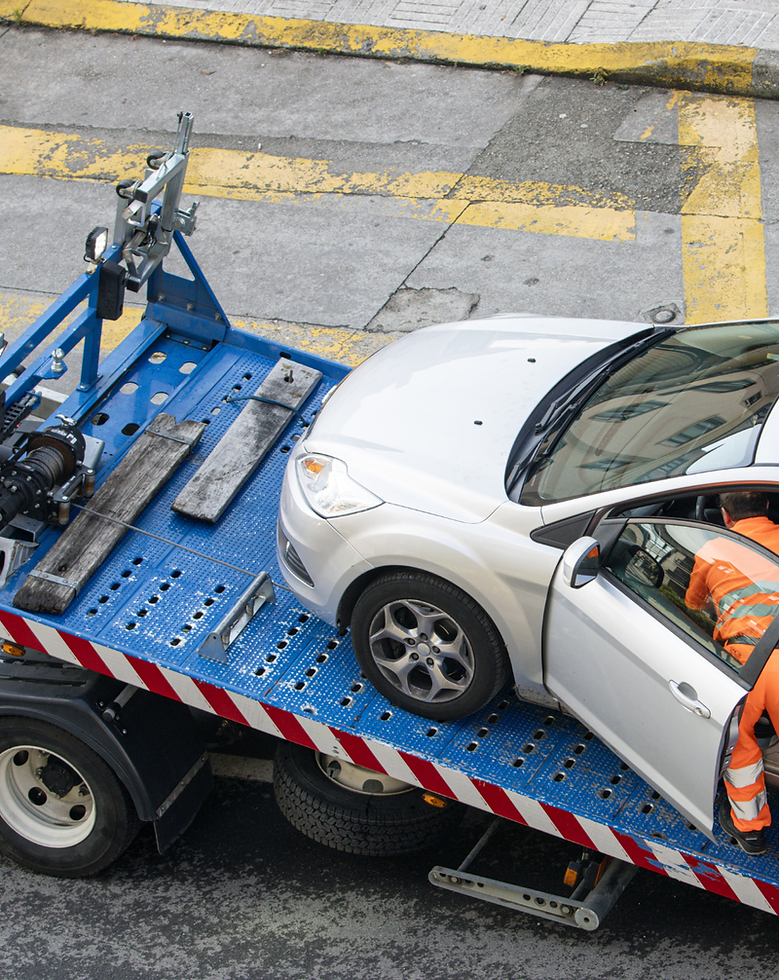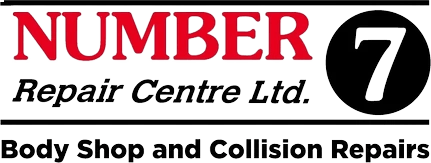
If you’ve been in a car accident, we’re here to help. Below are frequently asked questions and a step-by-step accident procedure to guide you through the process — from what to do at the scene, to understanding your rights, and getting the repairs you deserve.
Just in an accident? Call us 24/7

First and foremost, check to see that you are ok and then see if anyone else is hurt. If there are any injuries at all, call 911 immediately.
Observe your surroundings and make sure you are out of harms way.
Take detailed photos of the accident, the way the cars are positioned and the damage done to the vehicles. You should then proceed to exchange personal information. Depending on the situation, prepare to seek help from either the police and/or the nearest reporting centre and a nearby tow truck.
Check out our ACCIDENT PROCEDURE GUIDELINE for a step-by-step process.
** It is your right to request what repair facility your vehicle is transferred to.
For best results, request that they deliver your car to Number 7 Repair and we will make sure you are properly taken care of.
Yes—it’s your legal right to select the auto body shop for your repairs, even if your insurance company suggests another facility. At Number 7 Repair Centre, we prioritize your satisfaction and safety, offering OEM-certified repairs and direct insurance coordination.
NO, you must always go to the NEAREST reporting centre closest to you and where the accident happened. A reporting centre in another city will not accept your report and will simply direct you back to the reporting centre located in the same city were the accident occurred.
First, check yourself and make sure you are okay, then see if anybody else is hurt. If there are any injuries, call 911 immediately.
The Highway Traffic Act requires that all collisions where anyone is injured, where damage exceeds a combined value of $2000, or where there is damage to highway property, MUST be reported to police. - If no one is hurt and the damage is under $2000, the police at the reporting centre will not create a report for you.
If there is over $2000 of combined damage and there are no injuries or property damage, you must go to the nearest reporting centre. Call the reporting centre and ask for an incident number. This number will be needed when you get to the reporting centre. If your car needs to be towed then call a tow truck or use the one that is already there. In some cases police will instruct you to wait at the scene of the accident.
Absolutely! - In fact we highly encourage it for the reason that many tow truck services in Toronto and surrounding areas don't always have your best interest at heart. Often they will try to tow you to a location of their choice because of an "unique" deal they have with shops of lesser repute that pays them a "finders fee". It's important to always remember, it is your car, and you have full right todecide where you want your car to be taken after the reporting centre process is concluded.
If for whatever reason you are nervous, stressed or simply feeling overwhelmed, give us a call and we'll gladly help you through the process on what your rights are and what you should do.
Absolutely! We’re proud to be OEM Certified by leading manufacturers (Honda, Toyota, Ford, etc.). This guarantees your vehicle is restored to factory standards using the correct tools, parts, and training.
Yes! Our experts handle insurance claims daily and will advocate for you. We work with all major insurers to simplify estimates, approvals, and repairs—ensuring you get the coverage you deserve.
At Number 7 Repair Centre, we're happy to assist you in arranging a rental car while your vehicle is being repaired. We offer convenient rental options through both our own fleet and partner providers for maximum flexibility. Your rental coverage and availability may depend on your specific insurance policy and repair details. Our experienced team will guide you through the entire process and help determine the best rental solution for your needs. We'll handle all the arrangements to ensure a smooth, hassle-free experience while your car is in our care.
Repair timelines are unique to each situation and depend on our professional assessment and your insurance provider's estimate. After a complimentary inspection, we'll provide you with a personalized timeframe for your repairs. While we work efficiently to meet this projection, please understand that some factors – like specialized parts requirements or additional repairs discovered during the process – may affect the completion date. At Number 7 Repair Centre, we maintain clear communication throughout your repair process. You'll receive regular updates about your vehicle's status and any adjustments to the timeline. For your most accurate repair estimate, we invite you to bring your vehicle in for diagnosis. Our team is committed to providing transparent timelines and quality service for every unique case.
At Number 7 Repair Centre, we proudly back all our auto repairs with a Lifetime Warranty—because we believe in standing behind our work forever. Our team will explain all the details when we complete your service, but the bottom line is simple: If we fix it, it's guaranteed for life.
Certified Collision Repair For
.webp)





---Eng-400w.png)

_edited.png)
AUTO COLLISION ACCIDENT PROCEDURE GUIDE

STEP 1:
Stop. If your vehicle is involved in an accident and you don't stop, you may be subject to criminal prosecution.
STEP 2:
Call the police if anyone is injured, if the total damage to all the vehicles involved appears to be more than $2,000, or you suspect that any of the other drivers involved are guilty of a Criminal Code offence (such as driving under the influence of drugs or alcohol). Follow the instructions given to you by the emergency operator. Police will arrive as soon as possible. Do not try to move anyone injured in the accident — you may aggravate their injuries.
If no one is injured and total damage to all the vehicles involved appears to be less than $2,000, call a Collision Reporting Centre within 24 hours. These centres are police facilities created to assist motorists in reporting motor vehicle accidents. At the reporting centre you will complete a police report, and damage to the vehicle will be photographed. - Call (905) 851-2100 and inform them that you have been in an accident and ask for help on how to locate the Collision Reporting Centre nearest to you.
STEP 3.
If it is safe to do so, get out of your car. If you have access to a digital camera or a cell phone, you should use it to take pictures of the scene.
STEP 4.
When it is safe, move your vehicle to the side of the road, out of traffic. If your vehicle cannot be driven, turn on your hazard lights or use cones, warning triangles or flares, as appropriate.
STEP 5.
Record as much information as possible. Fill in an Accident Worksheet to help you remember what happened and to log all necessary details. You may also use your cell phone to audio and video record as much information as possible.
STEP 6.
Call your insurance company as soon as possible after the accident. Inform them what happened and ask for next steps. For more information on filing an insurance claim with your insurance company, visit the After an Auto Accident: Understanding the Claims Process page.
Remember. . .
-
As difficult as it may seem, it is important that you remain calm.
-
Do not argue with other drivers and passengers. Save your story for the police.
-
Do not voluntarily assume liability or take responsibility, sign statements regarding fault, or promise to pay for damage at the scene of the accident.
-
Be watchful for unauthorized tow truck operators.
Be prepared for any emergency on the road:
Always keep a basic vehicle first aid or emergency kit in the trunk of your vehicle. You can easily create an emergency kit for your vehicle by filling a plastic storage container with the following:
-
Pen and paper;
-
Accident Worksheet.
-
Basic first aid kit;
-
Camera;
-
Emergency road flares, warning triangles or cones;
-
Fire extinguisher (A-B-C Type);
-
Flashlight and extra batteries;
-
Bottled water;
-
Booster cables;
-
Tire repair kit and pump;
-
Small tool kit;
-
Towel;
-
Pair of work gloves;
-
Some type of non-perishable food;
-
Hand wipes; and
-
Thermal blanket.
Reporting Fraud
If you suspect that you may be a victim or target of a scam or fraud, you can help put an end to the scam or fraud by reporting it.
Call your local police and your insurance company to inform them and ask for next steps.
You can also submit an anonymous tip to Crime Stoppers (416) 402 6782-TIPS).
You may also file a report by calling (905) 851-2100TIP-NOW.
If you want legal advice, the Law Society of Upper Canada has services to help you find a legal professional.

Know Your Repair Rights in Ontario
-
You have the legal right to choose your repair shop
-
You’re entitled to a written estimate
-
OEM parts may be requested, depending on your policy
-
You must receive a copy of all repair invoices
-
No repairs can be performed without your authorization

